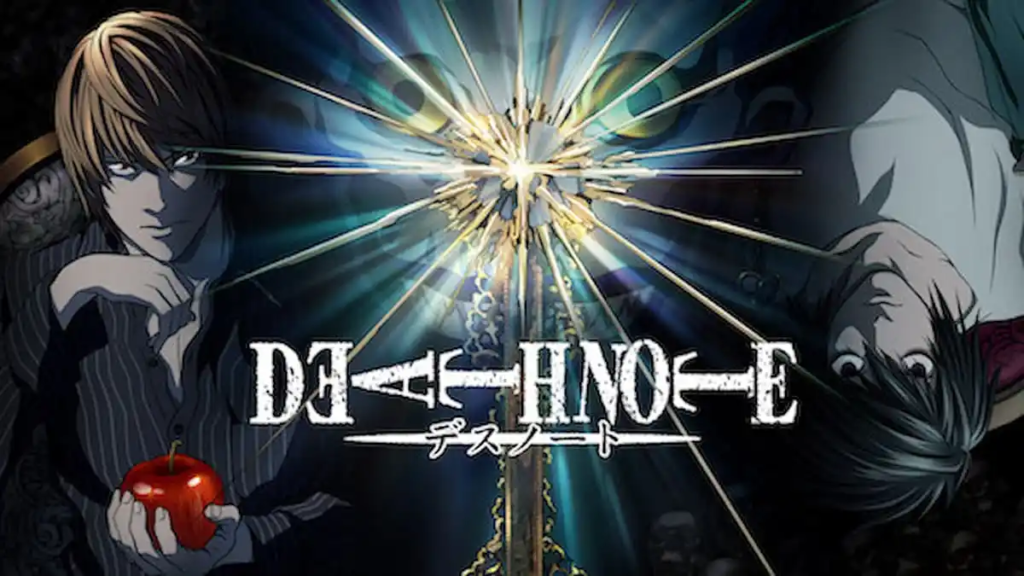Exploring the Intricacies of Death Note: A Deep Dive into the Psychological Thriller

Introduction
Death Note, a critically acclaimed manga and anime series created by Tsugumi Ohba and Takeshi Obata, has captured the imagination of audiences worldwide with its gripping narrative and thought-provoking themes. In this article, we will delve into the intricate world of Death Note, analyzing its psychological depth, moral quandaries, and the compelling cat-and-mouse game between its iconic characters. Join us on a journey through the dark and captivating realm of Death Note.
Unveiling the Death Note: A Supernatural Tool of Power
At the core of Death Note lies the eponymous supernatural notebook—a tool that grants its possessor the ability to kill anyone by writing their name within its pages. The Death Note’s introduction sets the stage for a morally complex narrative, exploring the ethical boundaries of power and the consequences of wielding it. This central premise becomes a catalyst for a compelling examination of the human psyche and the lengths individuals will go to achieve their goals.
The Mind Games Begin: Light Yagami’s Descent into Darkness
The series revolves around Light Yagami, an intelligent and ambitious high school student who discovers the Death Note and becomes consumed by its power. Initially driven by a desire to rid the world of criminals and create a utopian society, Light’s journey takes a dark turn as he succumbs to the temptations of godlike authority. The psychological transformation of Light Yagami serves as a cautionary tale, exploring the corrupting influence of absolute power on the human psyche.
L: The Brilliant Detective and Moral Counterbalance
L, an enigmatic and highly intelligent detective, serves as a captivating foil to Light Yagami. Obsessed with uncovering the truth behind the mysterious string of deaths attributed to “Kira” (Light’s alter ego), L becomes an intriguing embodiment of justice and moral righteousness. The intellectual battle between L and Light propels the narrative forward, showcasing the clash between two brilliant minds and their differing ideologies.
The Morality of Justice: Ethics and the Greater Good
Death Note delves into complex moral dilemmas, challenging the audience to question their own understanding of justice and the greater good. The series prompts reflection on the fine line between vigilante justice and the abuse of power, raising profound questions about the nature of morality, accountability, and the price of upholding one’s personal sense of justice.
The Human Condition: Fear, Manipulation, and Identity
Beyond its supernatural premise, Death Note delves into the depths of the human condition, exploring themes of fear, manipulation, and the fragility of identity. Characters are driven by their fear of being discovered, leading to intricate mind games and strategic maneuvers. The series delves into the psychological toll of deception, as well as the question of whether one’s actions define their true identity.
The Power of Manipulation: Light Yagami’s Machiavellian Tactics
As the series progresses, Light Yagami’s manipulation of others becomes a central element of the story. With each calculated move, Light demonstrates his ability to exploit human weaknesses and orchestrate events to his advantage. This exploration of manipulation raises intriguing questions about the limits of human cunning and the ethical implications of using others as pawns in a grand scheme.
Death Note’s Impact on Identity: The Masks We Wear
Death Note also explores the notion of identity, as characters don masks and personas to protect themselves or achieve their objectives. The series examines the complexities of self-perception, raising questions about the masks individuals wear and the true nature that lies beneath. This exploration of identity adds a layer of depth to the characters and invites viewers to ponder their own sense of self.
The Consequences of Absolute Power: Loss, Desperation, and Redemption
Throughout Death Note, the consequences of wielding absolute power are meticulously portrayed. Characters face dire consequences as they become entangled in the intricate web of the Death Note’s influence. Loss, desperation, and the search for redemption become prevailing motifs, shedding light on the devastating impact of playing god and the potential for moral salvation in the face of irreversible choices.
The Legacy of Death Note: Impact and Cultural Influence
Since its debut, Death Note has left an indelible mark on popular culture, captivating audiences and sparking conversations about morality, justice, and the human psyche. The series has inspired adaptations, spin-offs, and discussions across various media platforms. Its enduring legacy is a testament to the power of its storytelling and its ability to provoke deep introspection and societal reflection.
Conclusion
Death Note stands as a psychological thriller that explores the depths of human nature, morality, and the consequences of wielding power. Its complex characters, moral quandaries, and intricate cat-and-mouse dynamics have captivated audiences around the world. By diving into the intricate world of Death Note, we gain a deeper understanding of its psychological depth and its lasting impact on the realm of anime and storytelling.
Read More
- Anniversary Flowers Online MiamiFlowersOnline Shop
- “Feuer Speiender Berg (umgangssprachlich) Vegas Bonus Program Code 2024 Aktionscode 55 Freispiele
- 10 Reward Nach Registrierung 10 Euro Gratis Casino
- Vulkan Vegas Casino Auszahlung Erfahrung ️ Standocs
- Vulkan Vegas Erfahrungen 2024: Betrug Oder Seriös? » Zum Test